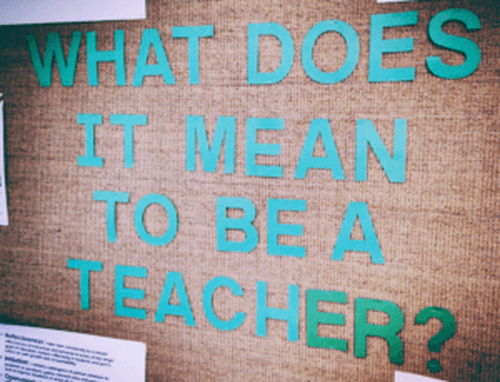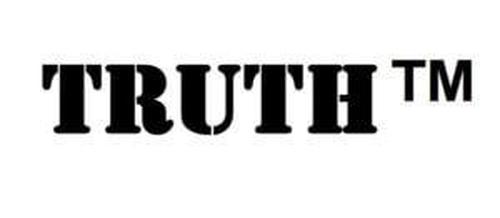Compulsory Political Ideology For Illinois K-12 Teachers And Classrooms Moves Closer To Finalization
Authored by Mark Glennon via Wirepoints.org,
A sweeping, radical rule is pending for Illinois K-12 teachers that should prompt everyone, of all political stripes, to fear about the fundamental roles that teachers and classrooms are assigned to fulfill.
We will get to the specifics of what is in the rule, but first ask some basic questions: What does it mean to be a teacher? What should it mean?
At least some answers are probably shared by most everybody — right, center and left – and certainly by the best of our teachers.
-
It should mean devotion to training our young people to think critically, free from any doctrinaire political mandates imposed on classrooms.
-
It should mean prioritizing basic skills for students in systems that have failed to teach them to read or compute at the most basic levels.
-
And it definitely should mean freedom to enter and stay in the teaching profession without any political litmus test.
Those answers, however, will be void if a pending rule in Illinois is allowed to become effective. The rule, proposed by the Illinois State Board of Education, is called the Culturally Responsive Teaching and Leading Standards, or CRTL Standards. It will get final ratification on February 16 unless heavy opposition materializes.
As you will see, it’s no exaggeration to say the standards would tell teachers what they must think, believe and teach – in broad political terms — and they would disqualify teachers who don’t conform.
We wrote about the proposal in November when we first heard of it. Unfortunately, the scope of its threat to education got little attention, with a couple important exceptions.
One who wrote about it is Nathan Hoffman, a black education policy researcher.
In an op-ed opposing the standards, he wrote they would “force onto teachers a singular view for some of our country’s most-heavily debated topics that they are then expected to carry forth into the classroom.”
Even if well-intentioned, Hoffman wrote, the standards would “impose one view of our culture and politics. They strip teacher candidates of a presumption of good faith intent and distract from the primary goal of providing a basic quality education to our students.”
Harsher criticism came this week from Stanley Kurtz, senior fellow at the Ethics and Public Policy Center. “Illinois is literally about to mandate that every one of its licensed teachers adopt progressive political orthodoxy and impart that ideology to students,” Kurtz wrote.
“The entire Illinois teacher corps will be effectively forced into political re-education and compelled to turn their classes into woke indoctrination sessions.”
We hope Kurtz’s article sparks further national attention to the pending standards.
What do the proposed standards say?
On the surface, the CRTL Standards might appear to be only about required teaching of critical race theory – alleged systemic racism, gender discrimination, systems of oppression, white supremacy, etc – centering on a requirement to be a “culturally responsive teacher.”
But each section of the rule starts by saying what a culturally responsive teacher will do. A few examples:
-
Mandatory counterculture curriculum. The culturally responsive teacher, the standards say, will “co-create content to include a counternarrative to dominant culture.”
-
Training students to be progressive activists. Culturally responsive teachers and leaders, the standards say, will “Research and offer student advocacy and activism content with real world implications and [h]old high expectations in which all students can participate and lead as student advocates or activists.” Teachers are also encouraged to substitute “social justice work” or “action civics projects” for more traditional forms of testing when deciding on a student’s grade.
-
Required thinking for teachers. The “culturally responsive teacher and leader will,” according to the standards, “engage in reflection about their own actions and interactions and what ideas motivated those actions,” and “explore their own intersecting identities, how they were developed, and how they impact daily experience of the world.” Teachers must “assess their biases and perceptions” about, among other things, “unearned privilege, Eurocentrism, etc.”
The first and most obvious problem is that the standards would force dogmatic answers to what indeed are some of our country’s most-heavily debated topics.
More importantly, compulsory answers on those topics necessarily imply compulsory viewpoints on broader political matters. As Kurtz put it, “the concept of systemic oppression detects racism and bigotry in almost every conservative policy position, from the environment to the budget. That means teachers who want to get and keep their licenses in Illinois have got to be full-spectrum progressives.”
Hoffman’s op-ed focused on the distraction away from what is a crisis at hand in many schools:
Consider that in 2019, only 37% of Illinois third graders could demonstrate grade-level proficiency in English-language arts and only 41% could demonstrate grade-level proficiency in math. In this same year, the Illinois General Assembly eliminated the basic skills test required for all teachers in Illinois, which assessed basic content understanding and application of core academic areas such as math and literacy.
With these new proposed standards in place, a teacher in Illinois will need not demonstrate competency in their basic knowledge of academic material but will have to demonstrate knowledge in concepts that are not only contentious but push an overtly political ideology outside the mainstream of the social and cultural debate.
What would happen to noncompliant teachers?
First, those who think differently would probably never get that far. The proposed regulation would govern how teachers are licensed and trained in Illinois. It would be incorporated into teacher preparation programs at college and university schools of education in the state. All public schools require licensed teachers, and many private schools prefer licensed teachers, although licensure in private schools is not legally required.
If a free-thinking teacher made it past that, they would face an evaluation process and the new standards would be part of how all teachers and administrators are evaluated. The new rule would make it easy for schools to force them into therapeutic “mitigation” of their deficiencies, as Kurtz put it.
Truth, in short, is something the rule’s authors think they own, and teachers better accept it.
That’s really the core problem with the standards: They are dogma sought to be imposed by extremists intent on making their truth the forbidden fruit in the Garden of Eden. Don’t even think about touching it. And their truth is not about whether the earth is round or how to do math. It’s about political ideology.
Kurtz put it this way:
The most inadvertently hilarious part of the standards is their insistence that there is “not one ‘correct’ way of doing or understanding something.” Except for Critical Race Theory, that is. Woke ideology is the one correct way of teaching, according to the new Illinois standards. The notes of the committee that created the proposed standards include a passage saying teacher preparation programs must be “forced” to teach Critical Race Theory. Relativism for thee but not for me.
How will Illinoisans react if the CLTL Standards go live?
Most are probably unaware of the proposal so far, but many surely will be livid when they wake up. That’s especially true for Illinoisans outside of the Chicago area.
The origins of the proposed standards are mostly in Chicago, where radically left educators dominate.
But beyond the Chicago area many Illinoisans will be repulsed by the standards. They are people of basic decency already fed up with what they see as the moral bankruptcy of Chicago area leadership.
“The backers of the new civics bill, Kurtz wrote, “openly concede that the ‘social justice frame’ of the Chicago civics curriculum won’t easily fly in more conservative parts of the state. (Note the implicit admission that the Chicago civics curriculum is thoroughly politicized.)”
You can expect many of them to join the growing diaspora of Illinoisans if the standards are finalized. Illinois expats who left for other reasons already fill Cubs bars in Nashville, music joints in Austin and retirement communities throughout the Southeast. The regions they are in will welcome parents who want apolitical schools for their kids.
* * *
All is not yet lost. The final word on the CLTL Standards is up to an obscure Illinois legislative committee known as JCAR, the Joint Committee on Administrative Rules. It will make its final decision on February 16. Opposition to the standards seems to be led by Rep. Stephen Reick (R-Woodstock), a JCAR member. However, JCAR is usually a rubber stamp and it is dominated by Chicago area legislators and others who support the standards. Unless they are overwhelmed by complaints, the standards will take effect. JCAR’s members are listed here. Tell them what you think.
Tyler Durden
Tue, 01/26/2021 – 17:25
via ZeroHedge News
Enjoy this article? Read the full version at the authors website: https://cms.zerohedge.com/


